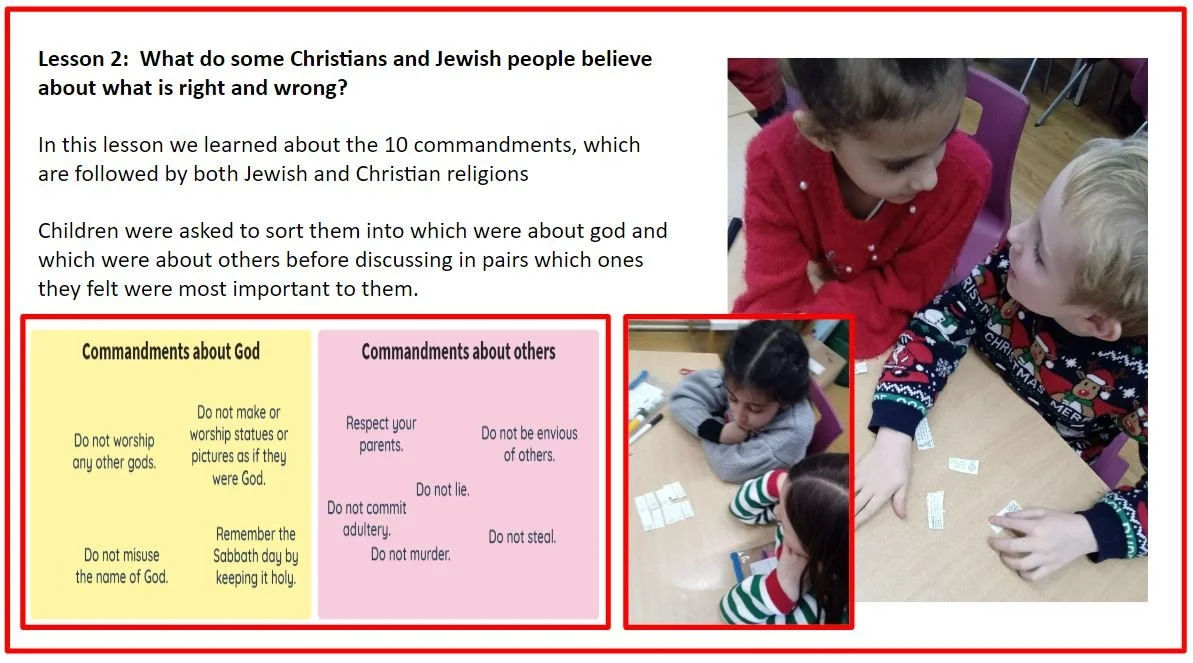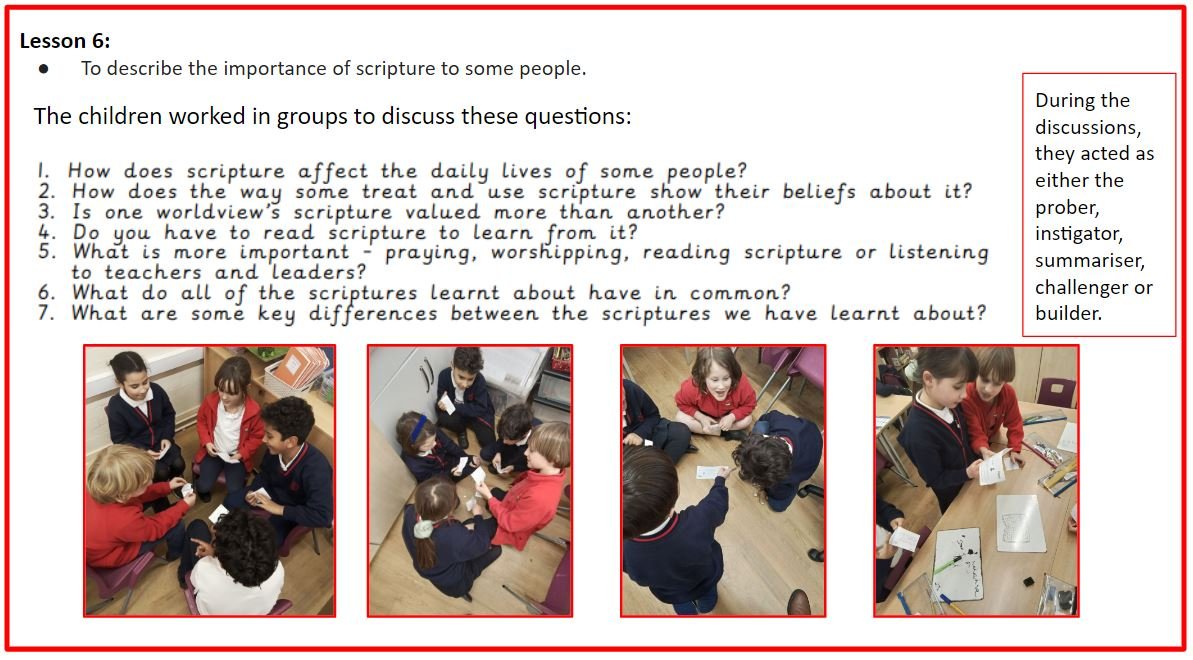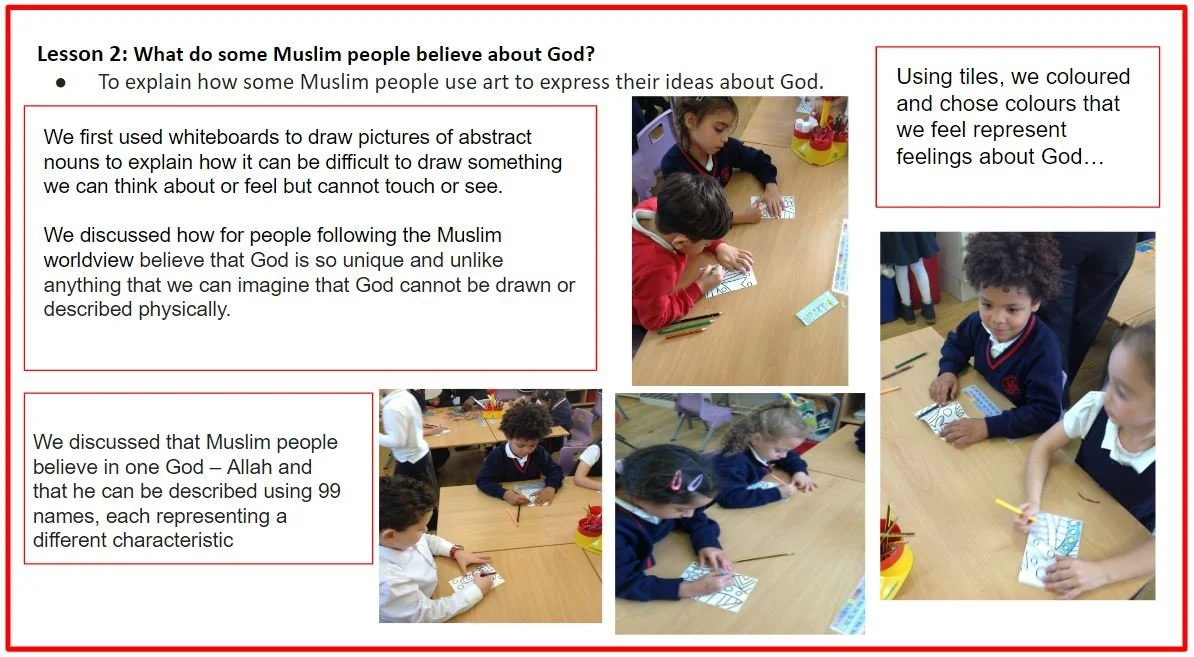
Religious Education and Worldviews
Intent: Vision and Philosophy of RE
Our Religion and Worldviews curriculum aims to develop deep thinkers who can reflect on religions, beliefs and worldviews and how these affect us. We ensure that our religion and worldview curriculum meets the requirements of the locally agreed syllabus (Wandsworth SACRE) and goes beyond this by ensuring our curriculum is relevant to our pupils and prepares them for life in modern Britain.
Through our curriculum, pupils will secure a deep understanding of concepts in order to be able to make connections, ask and respond to challenging questions, learn to respect and appreciate worldviews that are different to their own and consider their personal preconceptions, responses and views. Children will build their conceptual knowledge through studying religions and worldviews locally, nationally and globally in our progressive curriculum. They will be enabled to make links and connections between worldviews, develop disciplinary skills and build on their understanding of their own position in relation to their learning.
Implementation: What does RE look like at Hotham?
Our Religion and Worldviews curriculum follows the spiral curriculum model, where units and lessons are carefully sequenced so that previous conceptual knowledge is returned to and built upon.
Children begin to develop their awareness of religions and worldviews in Key stage 1, focusing on conceptual knowledge through the study of a limited range of religions and worldviews represented in the UK, including Christianity. In Key Stage 2, pupils learn about a greater range of religions and worldviews. Each unit includes overarching ‘big questions’ which will be revisited throughout, allowing children to apply the breadth and depth of their learning across different concepts.
These ‘big questions’ are:
Why are we here?
Why do worldviews change?
What is religion?
How can worldviews be expressed?
How do worldviews affect our daily lives?
How can we live together in harmony if we have different worldviews?
Our curriculum is non-denominational and does not present any religion or belief system according to the perspective of any one group. At Hotham, we emphasise the importance of diverse representations within and across religions and worldviews, focusing on real people’s lived experiences of their beliefs.
Impact: Evidence and Assessment of RE
The impact of our Religion and Worldviews curriculum is monitored through both formative and summative assessment opportunities. Samples of pupils' work are recorded in our digital scrapbooks and pupils are assessed informally in each lesson against the learning objectives.
Our curriculum supports pupils to:
be prepared for life in modern Britain, being able to interact with others from different religious and non-religious viewpoints in a respectful, knowledgeable and open-minded way
become enquiring learners who ask questions and make connections
develop the confidence to explore their personal worldview
have the skills to appreciate, evaluate and respond to religious, philosophical and ethical questions.
develop a range of disciplinary skills and knowledge to enable them to succeed in their secondary education
RE Overview
Please see an overview of our RE curriculum below.
Withdrawal from Collective Worship and/or Religious Education lessons
Parents have the right to withdraw their child from attending collective worship and/or Religious Education (RE) lessons at school. While parents are not obliged to state their reasons for seeking withdrawal, if this is requested, a member of the leadership team will contact the parents to discuss:
the planned content of upcoming collective worship/ RE curriculum;
the elements of worship / RE curriculum in which the parent would object to the child taking part;
the practical implications of withdrawal;
whether the parent will require any advanced notice of such worship/lessons, and, if so, how much.
If a child is withdrawn from collective worship/RE, they will be supervised elsewhere in the school while it is taking place.



